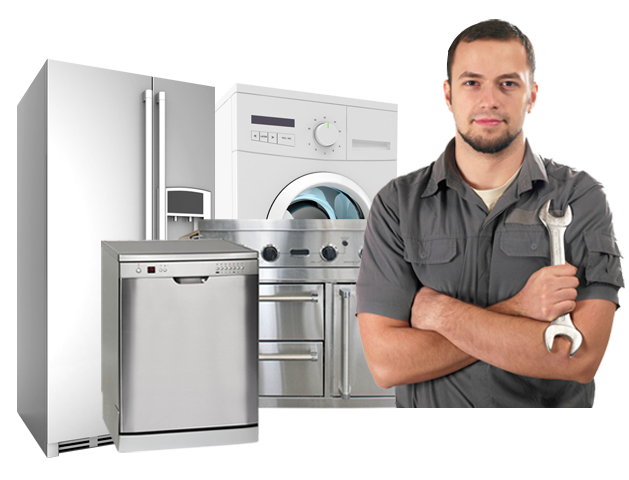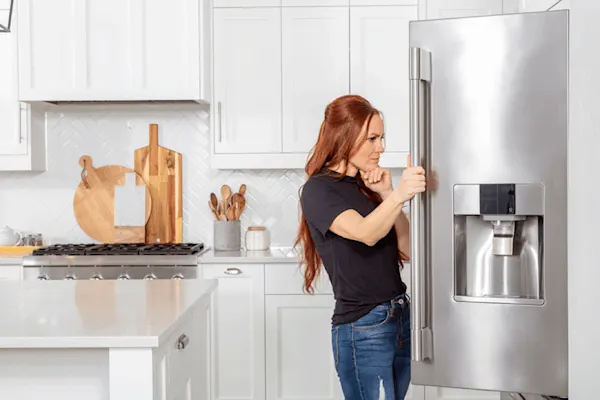The Ultimate Guide to Understanding Appliance Fixing in the house
When your refrigerator stops cooling or your oven refuses to heat, it can feel overwhelming. Understanding appliance fixing in your home can conserve you time and money. You'll learn to acknowledge signs and symptoms, utilize crucial devices, and comply with an organized troubleshooting process. But prior to you begin, there are crucial safety and security preventative measures you require to take into account. What are one of the most usual issues, and just how can you repair them? Allow's discover the fundamentals.
Common Home Appliance Issues and Their Signs and symptoms
When your devices start breaking down, it's vital to identify the indications at an early stage. Neglecting them can lead to larger issues and pricey repair work. If your refrigerator isn't cooling down effectively, you might notice cozy spots or condensation creating. This might suggest a failing compressor or an obstructed vent.Your dishwashing machine may reveal troubles with dirty meals or uncommon noises during cycles. If you listen to grinding or clanking, it's time to investigate.A cleaning equipment that will not rotate or drain pipes can leave you with soggy washing, suggesting a clogged up drainpipe or a malfunctioning pump.Lastly, if your stove's temperature level seems off or it takes for life to pre-heat, you could be dealing with a damaged thermostat. By staying sharp to these signs, you can address problems prior to they rise right into significant repair work.
Important Devices for Appliance Repair Service
When you're taking on appliance fixings in the house, having the right devices is necessary. Basic hand tools like screwdrivers and pliers will help you disassemble and fix various appliances, while electric testing tools ensure you're working safely with circuitry. Allow's look at what you need to start on your repair trip.
Fundamental Hand Devices
Having the right tools is crucial for reliable home appliance repair at home. Begin with a trusted screwdriver collection, consisting of both flathead and Phillips types, as screws prevail in home appliance assembly. Pliers are additionally important; they aid with gripping, twisting, and reducing cables or little parts. A set of needle-nose pliers can reach limited spots conveniently. You'll require a good flexible wrench for tightening or loosening up nuts and bolts. An utility knife comes in handy for reducing through product packaging or insulation. Don't fail to remember a sturdy workbench or surface area to safely organize your devices and components. With these basic hand devices, you'll be well-prepared to deal with most device repairs that come your method.
Electric Screening Tools
Together with fundamental hand devices, electric screening devices play a vital duty in device fixing. These tools help you detect electrical concerns and guarantee devices function safely. A multimeter is crucial; it gauges voltage, existing, and resistance, enabling you to determine problems rapidly. A non-contact voltage tester is an additional essential, letting you find live wires without making straight call, enhancing your safety and security. Secure meters are terrific for measuring existing flow in cords without separating them, saving you time and effort. In addition, circuit testers can rapidly check if outlets are operating appropriately. By utilizing these gadgets, you'll enhance your troubleshooting procedure and improve your repair service skills, making home appliance upkeep a lot easier.
Step-by-Step Guide to Diagnosing Appliance Issues
When your home appliance acts up, it can be irritating, yet identifying the issue doesn't have to be overwhelming. You'll discover to determine typical issues and apply effective fixing techniques. Let's walk through the actions to obtain your home appliance back in functioning order.
Common Appliance Troubles

Troubleshooting Strategies Discussed

Fixing Major Kitchen Area Appliances: A Closer Look
Have you ever asked yourself exactly how to deal with usual issues with your cooking area home appliances? Repairing significant kitchen appliances like refrigerators, stoves, and dishwashing machines can be easier than you assume. Beginning by identifying the issue-- whether it's a fridge not cooling or a stove that will not warm. Commonly, a basic reset or examining the source of power can address the issue.For refrigerators, clean the condenser coils and examine the door seals. If your oven's not heating, evaluate the burner and thermostat. Dish washers may simply require a tidy filter or a reset to obtain them back at work. Always disconnect the device before diving into fixings to ensure your safety.Don' t neglect to speak with the individual guidebook for certain troubleshooting suggestions connected to your model. With a bit of persistence and the right devices, you can with confidence take on device repair work and conserve money in the procedure!

Repairing Washing Devices: Tips and Techniques
When your laundry devices begin acting up, it can feel overwhelming, however repairing them does not need to be a problem. Beginning by examining the power supply. Validate the device is connected in and the outlet is working. Next off, check the door or cover button; a defective switch can stop the device from operating.For washing machines, if it's not spinning, look for unbalanced loads. Rearranging the clothing might fix the concern. If your clothes dryer isn't heating, clean the lint filter and inspect the air vent for blockages.Listen for uncommon noises; they can suggest a problem. If your device is leaking, check the hoses for fractures or loose links. Record any type of error codes presented on electronic displays, as they can lead you in recognizing the issue. Finally, consult the customer handbook for specific fixing suggestions connected to your version.
Safety And Security Preventative Measures to Take Throughout Repair works
Prior to you start any type of appliance repairs, it's vital to focus on safety and security to avoid mishaps or injuries. Disconnect the device or transform off the circuit breaker to assure no power reaches it while you function. Usage protected tools to minimize the threat of electric shock. Put on safety and security goggles and gloves to protect on your own from sharp sides or debris (Dryer repair Oro Valley Dependable Refrigeration & Appliance Repair Service).Make certain your office is clean and well-lit, so you can see what you're doing. Keep kids and pet dogs away from the area to stay clear of distractions and prospective hazards. If you're taking care of gas appliances, be extra careful; look for leakages prior to proceeding.Take your time, and do not hurry with repairs. If you feel unsure regarding any kind of step, it's much better to stop and research study than to guess. Complying with these safety measures will certainly help create a much safer atmosphere for your do it yourself device repair project
When to Call a Professional for Assistance
Exactly how do you understand if it's time to call a specialist for device repair services? If you have actually attempted standard troubleshooting without success, it's a clear indicator. For circumstances, if your home appliance still won't start or reveals uncommon noises after resetting it, don't wait to seek professional help.When you see leakages, smoke, or shedding smells, prioritize safety and security and call a professional immediately. These concerns can cause more substantial damages or position risks to your home.Also, if your device is under service warranty, contacting a professional is typically the most effective route. They can guarantee that repair work won't invalidate your guarantee, saving you cash in the lengthy run.Finally, if you're unsure or unpleasant with intricate repair services, it's a good idea to leave it to the experts. Keep in mind, taking on challenging issues without the right proficiency can bring about pricey errors. Trust an expert when unsure!
Often Asked Questions
Just How Can I Stop Appliance Troubles in the Future?
To avoid appliance issues in the future, you need to do regular maintenance, look for wear and tear, tidy filters, and stay clear of overloading. Staying aggressive will assist extend their lifespan and keep them running efficiently.
What Are one of the most Usual Do It Yourself Home Appliance Repair Mistakes?
You might forget safety precautions, miss fixing actions, or make use of incorrect tools when attempting do it yourself home appliance fixings. Rushing the process or disregarding maker guidelines can lead to more considerable problems and pricey errors. Keep client and educated!
How Do I Know if a Component Requirements Replacement?
You can tell if a component needs replacement by looking for uncommon sounds, leakages, or irregular efficiency. If the home appliance has a hard time to run correctly or reveals visible damages, it's likely time for a substitute.
Can I Utilize Generic Components for Home Appliance Repairs?
Yes, you can use common parts for appliance fixings, however determine they work - Dependable Refrigeration & Appliance Repair Service Dryer repair near me. Common parts might save you cash, yet they could influence performance or longevity, so consider your choices thoroughly prior to deciding
What Guarantees Cover Home Appliance Repairs?
The majority of home appliance warranties cover repair work for producing defects, yet they usually omit damages from misuse. Inspect your guarantee terms very carefully, as some may call for making use of certified professionals and initial components for insurance coverage to continue to be legitimate.